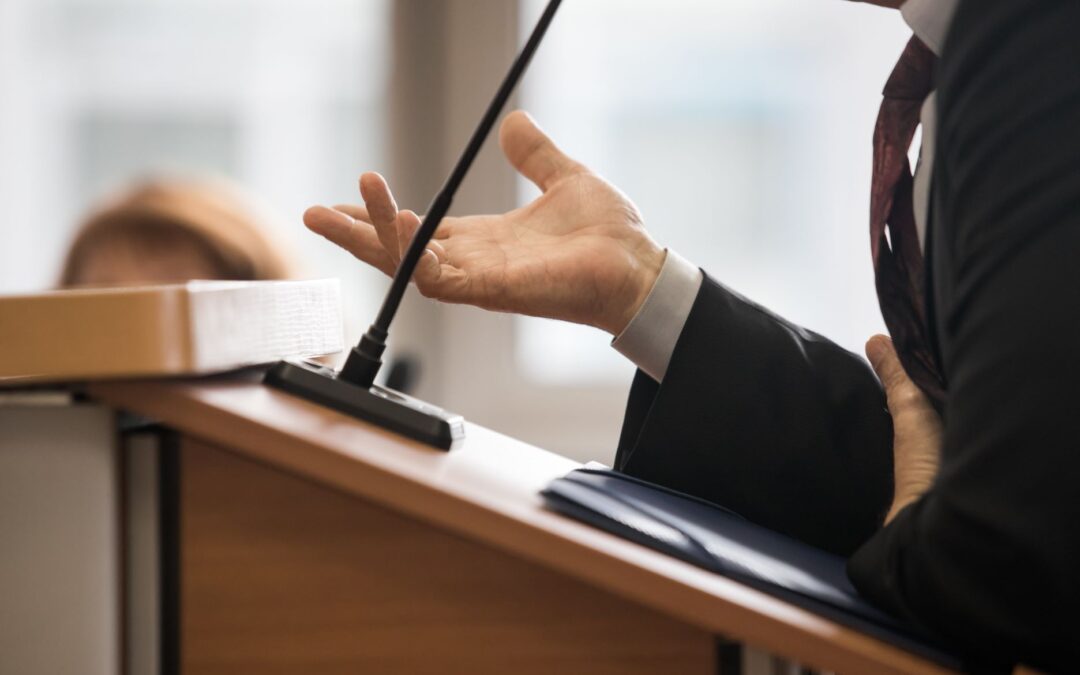Expert witnesses can play an extremely important role in both a trial defence strategy and in sentence mitigation during a plea hearing. This article will examine the role of expert witnesses and how they can be utilised by defence lawyers.
What is an Expert Witness?
Expert witnesses are people who have specialist knowledge or unique experience in a certain area. For either the prosecution or defence to call an expert to provide an opinion in Court, they must have specialised knowedge, based on their training, study or experience. Experts may be employed by either the prosecution or defence to provide an expert report on their opinion in relation to an aspect of evidence. If a matter proceeds to trial, these experts will then be called as witness and be examined and cross examined by the parties’ barristers.
Whilst the Evidence Act generally excludes opinion evidence, pursuant to section 79 ‘experts’ are exempt from exclusion. The role of an expert witness is to provide relevant and impartial evidence in their area of expertise. Expert witnesses are commonly utilised by the prosecution to support their evidence and the case against the accused. However, expert witnesses also have a role to play for defence strategies, including rebutting the evidence given by an expert witness called by the prosecution.
The Role of an Expert Witness in Trials
In Australia, the burden of proof in a criminal trial is ‘beyond a reasonable doubt’. That essentially means that the prosecution must prove the elements of the offence to a very high standard, where the jury is almost certain that the accused person is guilty. Accordingly, expert witnesses can play an integral part in a winning defence strategy, as they can place doubt over whether evidence does in fact support a prosecution assertion. They can also help to prove or disprove facts in issue, thus promoting the case theory of the defence.
A pertinent and common example is in culpable driving cases involving major collisions. In such cases, it is commonplace for the prosecution to employ the services of a forensic collisions expert. These experts will look at the evidence obtained by the police and then form an opinion on how the collision likely occurred. This report can then be used by the prosecution to support their assertion that it was the accused who is at fault. This can be very convincing in the eyes of the jury and can be the proverbial nail in the coffin of the accused’s defence. However, the defence may also wish to call their own forensic collision expert, who may look at the evidence and the reconstruction of the collision and form an entirely different opinion. They may also identify areas of analysis missed by the prosecution expert and assist the defence to craft their cross-examine the prosecution in a way that highlights the weaknesses in the prosecution case.
This may be imperative to the jury as it creates a level of doubt as to who was at fault and ultimately whether the accused should be found guilty. Ultimately, as this example highlights, expert witnesses can be highly influential on the outcome of a trial and can be the difference between a guilty or not guilty decision.
It is important to note that whilst experts may disagree on evidence analysis and the forming of opinions, experts have an overriding duty to the court and therefore must assist the court in an impartial manner. They must be unbiased in their opinions and only form opinions that come within the ambit of their expertise. Further, sometimes an independent expert will agree with the prosecution expert, which may be an issue to consider when considering whether to plead guilty or not guilty.
The Role of an Expert Witness in Pleas
Expert witnesses can also play an imperative role in plea proceedings. Expert witnesses such as forensic psychologists are often consulted with and employed to assess individuals who have entered a plea of guilt or will enter a guilty plea. A forensic psychologist’s primary role is to conduct a forensic/psychological assessment and then prepare a report that is tendered in court. These reports typically include details regarding the offender’s background, psychological state at the time of the offending, their prospects of rehabilitation and other relevant matters that may assist the offender in rehabilitating, such as an opinion on the likely impact of a custodial sentence compared with community work.
Psychological reports can further assist the court in better understanding the psycho-social dynamics and conditions that led to offending behaviour. They are therefore highly relevant in situations where an offender has a history of mental health or psychiatric conditions that may have influenced their decision making and offending behaviour. In cases where a forensic psychologist has been consulted and a report tendered, it may be useful to call them as a witness upon plea so that they can further delve into the offender’s behaviour and mental state both during and subsequent to the offending. Accordingly, expert reports such as those from forensic psychologists can be highly influential on an offender’s sentence and in many cases can help an offender avoid a custodial sentence. Once again, expert witnesses in pleas have a paramount duty to the court and must be unbiased in their opinion. All experts must follow the rules as described within the Supreme Court and County Court practice notes.
Get in Touch with Galbally Parker Criminal Defence Lawyers
Ultimately, expert witnesses can be highly influential on the outcome of a case. From a criminal defence lawyer’s perspective, they can make or break a case. It is therefore best to use lawyers who know how to best employ, consult and utilise expert witnesses. At Galbally Parker, we strategically use expert witnesses in order to achieve successful outcomes for our clients. Our meticulous approach to selection, consultation, and presentation of expert witnesses consistently delivers favourable results for clients facing criminal charges. We assist clients across Melbourne with their criminal matters, including Frankston, Moorabbin, Werribee and Dandenong.


